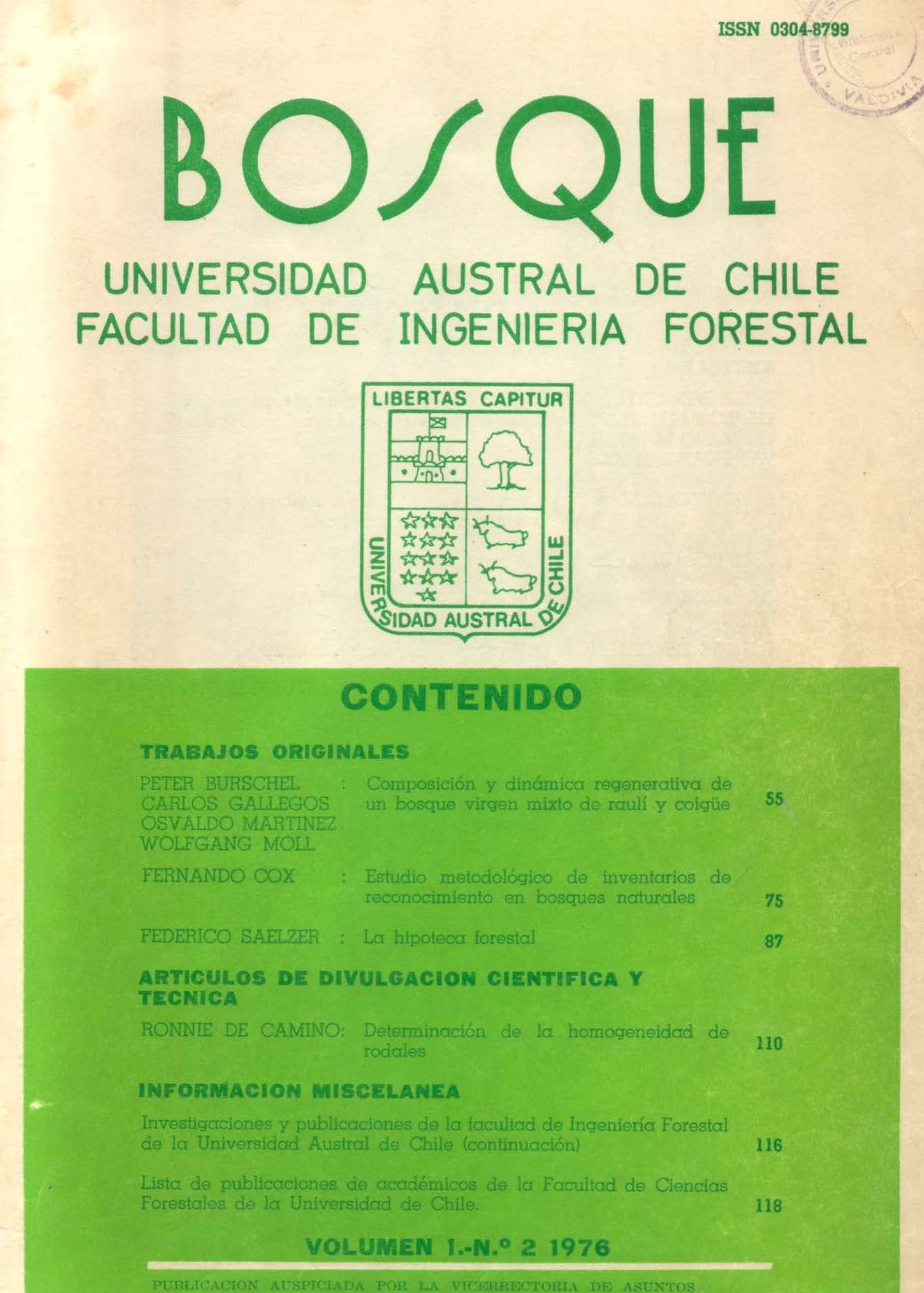La Hipoteca Forestal
Main Article Content
Abstract
The regime of forestry improvement created by the Chilean Decree-Law N° 701 in 1974, is characterised by: a) the qualification of a land or of a forest already existing, naturally or artificially, as forest or preferably forest, qualification that distinguishes it, from the legal point of view, from other terrains or woodlands for which qualification has not been entreated; b) by their assimilation to a regime of management characterised by premiums and tax exemptions for the owner while he follows the plans approved by the Forestry Service, but which he must return if he does not comply with said plans; and c) by the character of "real" right (jure in re), inscribed in the Registry of Real Estate Property, which the above mentioned assimilation has, and which encumbers the land in the form of a mortgage, irrespective of the owner of it and in spite of the mutations in its ownership. This mortgage, which the author calls a FORESTRY mortgage, as opposed to the voluntary or conventional mortgage ruled by the Chilean Civil Code, and the legal mortgage determined by the Civil Procedure Code suggests, like every new legal institution, certain doubts which professors, doctrine and jurisprudence must clarify. The present work points to the main questions, in the spirit of collaborating to the advancement of a system which is not only an innovation, but is good, and may bring about the renewal and development of the once abundant and productive Chilean forest.

